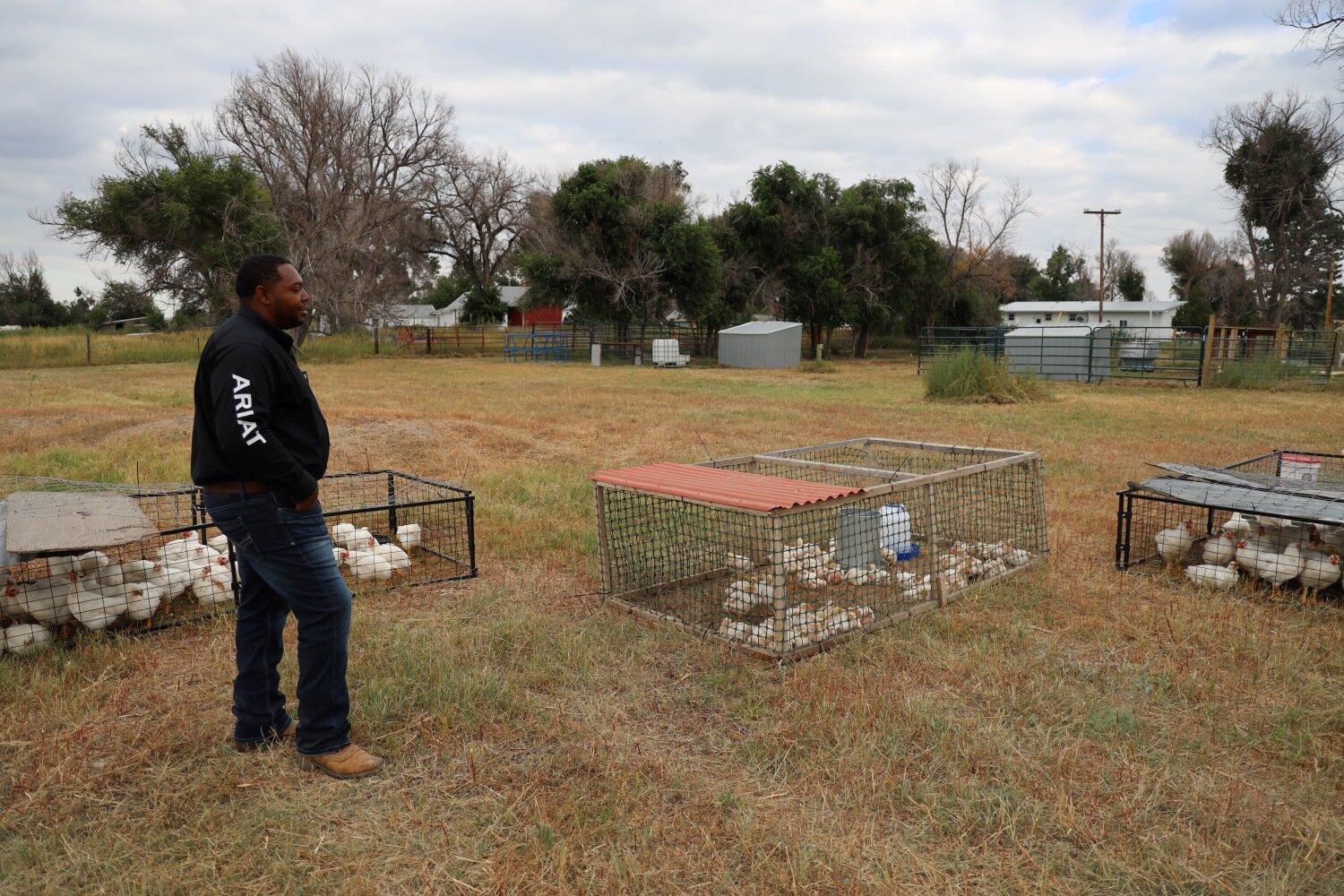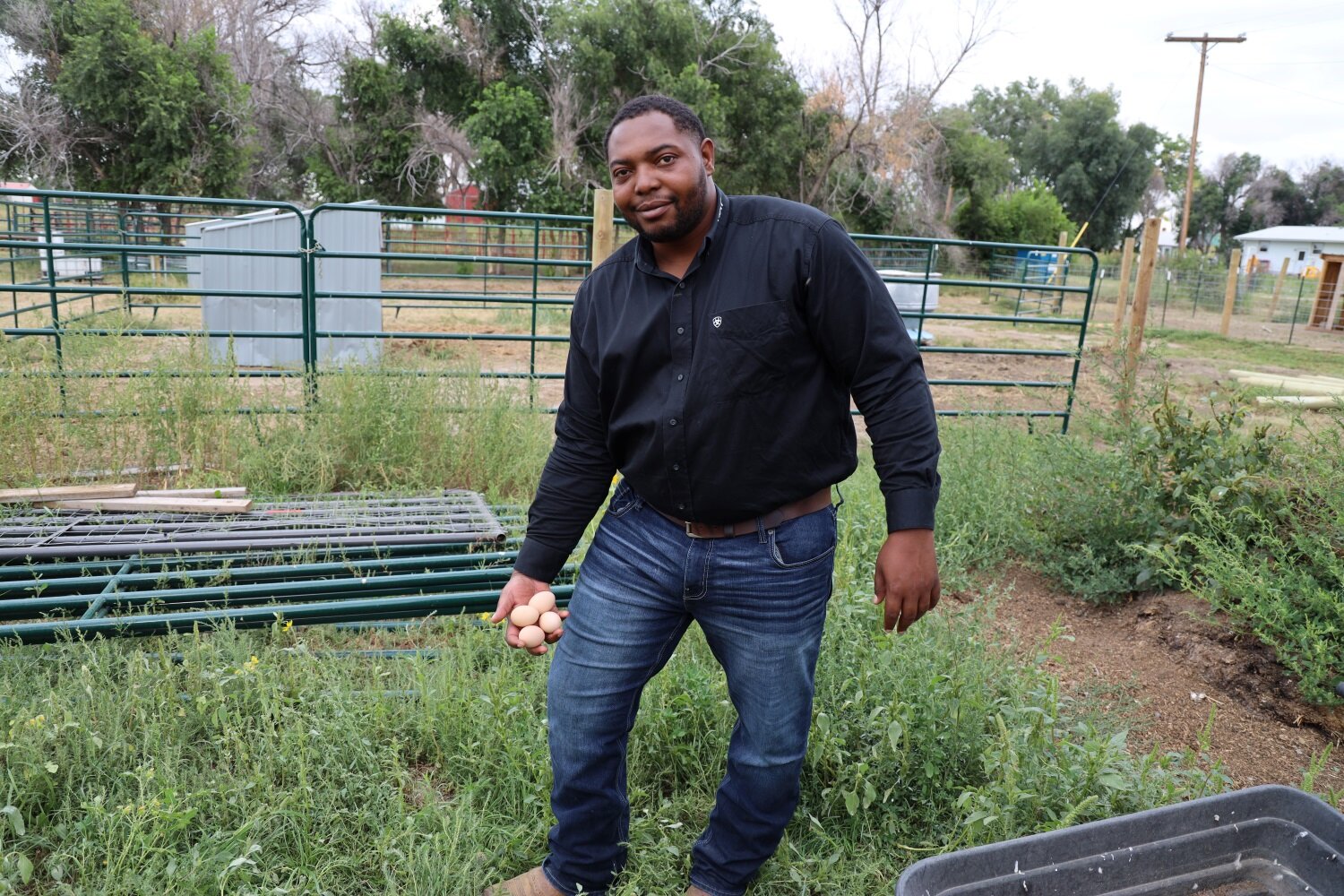Local ranchers weigh in on lab-grown meat

For ranchers and farmers of Colorado, the prospect of lab-grown meat is leading to some mixed emotions.
Maarten Vanzoeren is a butcher and owner of Simla Frozen Food Locker LLC in Simla, Colorado.
At Vanzoeren’s shop, he slaughters rabbits, goats, lamb, poultry, wild game, beef, pork and then turns the meat into steaks, sausages, and more. Vanzoeren said the production of lab-grown meat doesn’t intimidate him.
“The approval of lab-grown meat, I’m kind of mute to it. I don’t see a need for it,” Vanzoeren said. “Somebody might argue, well, we don’t have to butcher an animal for it. You’re not going [to go] home and raise your own lab-grown meat cells, so that is not going to happen. You are not going to come in with a cooler full of meat cells and say, ‘Can you make this into a jerky or a summer sausage?’ I find it interesting, but I don’t think it will ever affect me.”
James Hull, a livestock rancher at Hay Creek Ranch in Larkspur, said one of his primary goals in raising cattle is transforming Colorado land and soil to the healthiest it can be. Hull said he practices regenerative farming procedures and does not use chemical feeds for his livestock. His goal is to raise livestock into lifetime pasture, meaning livestock would be able to graze and survive year-round in Colorado.
Hull said he is a fan of science but still has many questions about whether lab-grown meat will provide sufficient protein to consumers. Hull explained that he is not fearful of lab-grown meat but believes traditional meat cultivation is the best way for people to get sufficient protein.
“You can’t get something out of nothing,” Hull said. “So, if you’ve got good nutritious soil, you end up with good nutritious grasses, which produce good nutritious beef, which produces healthy people.”
Livestock ranchers like Lance Wheeler and Terrance Boyd said they are on the same wavelength as Hull in being conscious stewards of the land and soil. Each pride themself on regenerative farming practices, like using chicken tractors and naturally grazing livestock. A “chicken tractor” is a bottomless chicken coop that can move about the soil, allowing the chickens to scratch at the earth and create vegetation growth.
Related Story


Lance Wheeler, owner and manager of Rafter W Ranch in Simla, expanded on the importance of eating locally grown foods. He discussed how consuming local foods like honey and meats can reduce the allergy response in the body.
Regarding lab-grown meat, Wheeler feels the same as Hull, concerning its nutritional value to traditional meats.
“If it’s divorced from the ecological and organic processes, how can it actually provide real substantive nutrition to any person that consumes it right?” Wheeler said. “It may be calories, but, what about phytonutrients, things that actually make your cellular structure stronger?”
Terrance Boyd’s most significant concern over lab-grown meat is its potential to make consumers dependent on a corporation to feed them. He said that he started his homestead, Wild Boyd Farm, years ago for this reason.
“I mean, there is not a lot of transparency in food today,” said Boyd.
Boyd said one of the most gratifying things about growing his own food is inviting the public to view his farm to show people a different lifestyle.
Lance Wheeler also invites the public to learn more about where their food comes from. He also provides educational resources about agriculture. Wheeler said it’s been a humbling experience to work with and meet fellow ranchers and farmers.
“They are some of the noblest people I have met in a very long time that are part of this work,” Wheeler said. “And it is gratifying and humbling on some levels to be in their company.”
Lindsey Ford is a multimedia journalist at Rocky Mountain PBS. You can reach her at lindseyford@rmpbs.org.